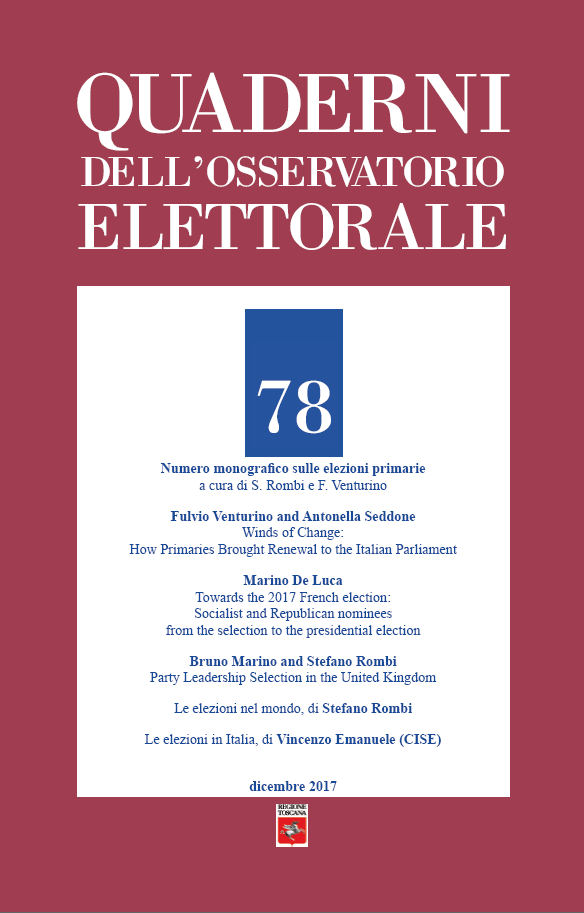Pubblicato 2017-12-30
Parole chiave
- Italy,
- parliamentary elections,
- primary elections,
- legislators
Come citare
Abstract
In the lead-up to the 2013 parliamentary election, four Italian parties used primaries to select candidates. Primaries, which were autonomously decided upon by the parties' central offices, have operated according to different rules. These quasi-experimental circumstances allow an assessment of the effects of rules and selectors' predispositions in the promotion of legislator renewal. An examination of three aspects of renewal–gender balance, rejuvenation and turnover–found that party leaderships sometimes deliberately pursued renewal through biased rules. The cases in point are Partito Democratico and Sinistra Ecologia e Libertà regarding gender balance, and Movimento 5 Stelle (M5S) regarding turnover. Moreover, even when unconstrained by the rules, selectors have pushed for renewal, as shown by the rise in female representation in the M5S. In general, primary elections have demonstrated to be renewalfriendly. However, it remains unclear whether this is an idiosyncratic effect connected to a single election, or a general tendency due to the characteristics of primary voters.


